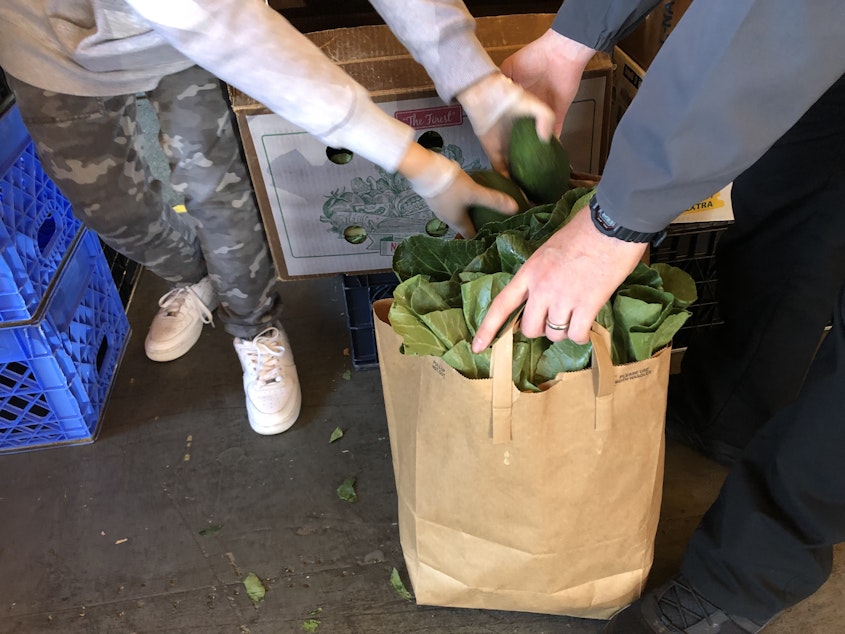As safety nets expire, Seattle food banks expect more people to come through their doors

Seattle food banks are bracing for longer lines and increased demand when the City of Seattle lifts its Covid emergency at the end of the month. The emergency declaration has provided protections for renters and essential workers.
One of the things that got people through the early years of the pandemic was government money. Now local safety nets are expiring. But agencies like the Rainier Valley Food Bank are busier than ever.
As people lined up, Executive Director Gloria Hatcher-Mays met with Congressman Adam Smith. Smith was among the Washington delegation that worked to help expand people’s access to food. Hatcher-Mays thanked him for the federal support, but said nonprofits like hers still need more.
“Everyone else has sort of gone on with their lives,” Hatcher-Mays said. “But the people at the low end of the spectrum cannot go on with their lives, because they’re being squeezed terribly at the bottom end of the economy.”
Hatcher-Mays expects a slower economic recovery, which means people will continue to rely on food banks to make ends meet.
Smith sympathized. But he said the federal government can’t pass $6 trillion every two years, without a good case.
Sponsored
“We need to really take a deep dive and say where are we spending? What are we getting out of spending?" Smith said. "And then, yes, this makes it easier for me to say, 'Gosh, this program, we got the data, this works incredibly well, let’s get more money.'”
According to a UW survey, 10% of Washington residents experienced food insecurity before the pandemic. But that number nearly tripled last year.




